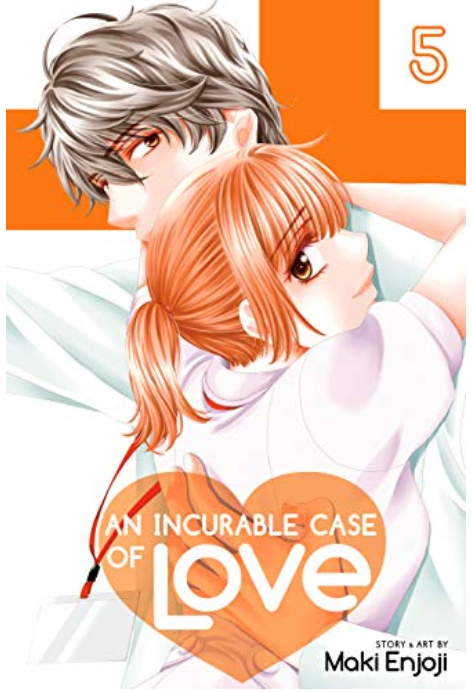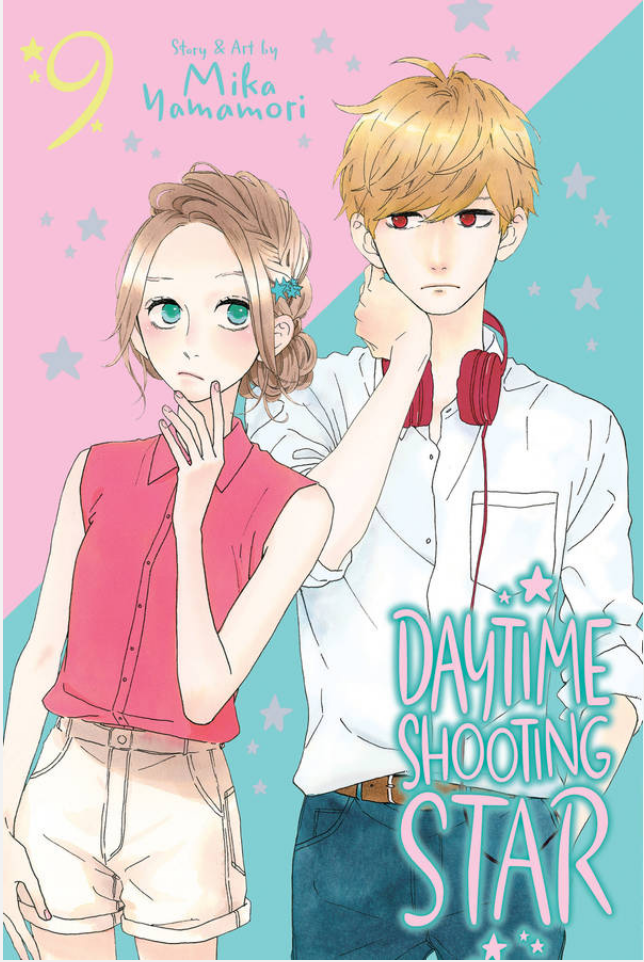An Incurable Case of Love Volume 5 by Maki Enjoji
After four volumes with plenty of workplace hijinks now that Tendo and Nana have become an actual couple, there have to be some random external influences show up to test their relationship. In the fifth volume this takes the form of a forlorn young man who shows up and demands that Nana hide him from some people who are following him. This turns into an extremely odd impromptu date involving a bowling alley and a park. Nana humors him for awhile, because her nursing instincts are kicking in. When he has a seizure, Nana has him transported to her hospital.
The young man turns out to be Chikashi, the heir to a conglomerate. He refuses to be transported to a private hospital and demands that Nana be assigned as his personal nurse. Nana agrees after Chikashi makes it clear that he isn’t above a bit of blackmail, he also incorporates some threats to Tendo’s career. Nana and Tendo’s relationship is strained, and while Chikashi is clearly acting like an extremely bratty patient, he’s also doing this because he’s incredibly lonely. One of the best parts of this volume was Tendo’s aggravated faces as he attempts to deal with this situation semi-professionally. Nana lets her caring nature lead to her getting taken advantage of, but it seems like Chikashi ends up in a better place than he was before, so if her goal is to maintain being an excellent nurse, she’s still on track to achieve it. While there isn’t really a high amount of drama or complex story line in this volume, this workplace romance still manages to be diverting and seeing Nana and Tendo work through their issues with the core of their relationship strong is plenty heartwarming.







Recent Comments